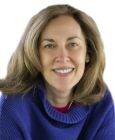Adolescence
Q&A with Kurt Andersen
Founder of Spy Magazine on time travel, faith, and his newest novel.
Posted August 22, 2012
“By far the most interesting thing about my life, however, is nowhere in my resume or official bio or Wikipedia entry. I’m not exactly who the world believes I am. Let me cut to the chase: I once set out to commit a spectacular murder, and people died. But it’s not a simple story. It needs to be unpacked very carefully. Like a bomb.” -- from True Believers, a novel by Kurt Anderson
Jennifer Haupt: True Believers, your new novel, alternates between present day and the 1960’s. If you could go back to any decade (even before you were born), which era would you choose and why?
Kurt Andersen: That's actually a question I think about a lot. Time travel is my abiding fantasy. On the one hand, I would like to go back to see and hear and smell and feel the 1960s as an adult, since I only experienced it as a child. But the 1780s in London and 1900-1910 in Europe would probably be at the top of my list for past decades to visit.
JH: Do you think we tend to romanticize the time period when we were “true believers”?
KA:

KA:
JH: How much of your main character, Karen, is you?
KA: I think of fiction writers like Dr. Frankensteins, meaning they use bits and pieces of friends and family and acquaintances – and themselves -- to concoct the artificial humans in their stories. But while Karen and I share some biographical details (Midwestern childhoods, Harvard educations, juvenile diabetes, Danish ancestry), and if we met we would agree about a lot of "issues," we are very different people – she is much more of a worrier and (except for when she went off the deep end at age 18) more straight-arrow than I am. She's both more emotional and more closed off to other people than I am. She feels a sense of duty more strongly than I do. And although she officially abandoned Roman Catholicism as a young woman, it permanently shaped her character – whereas I was raised in a completely irreligious household.
JH: At the beginning of the novel, Karen debates writing a memoir and decides not to because it may harm her tight group of friends. Have you considered writing your memoir?
KA: Although she finally does write the memoir, of course, (former) friends be damned – that memoir is this novel. I've never thought for more than five seconds about writing a memoir. It took me 15 years of being an adult to feel as if I had enough life under my belt to write a novel. I don't know if I'll ever reach that point as far as a memoir goes. I tend to think my real life isn't interesting enough. I guess that's part of the reason why I make up stories about people with more interesting lives.
JH: You write for film, television, stage, magazines, books—do you have a favorite format? What is it about writing novels that appeals to you?
KA: Unlike writing scripts for actors to perform, the author of a novel is entirely, gloriously, terrifyingly in control of every bit of the story. That's fun, and unlike any other kind of writing. And writing fiction, unlike nonfiction, you can get deep into the heads of all sorts of people, people entirely unlike oneself -- and you don't need (or generally want) to make an argument. That's amazing. And with a novel, unlike short fiction, you can really construct an alternate universe. All of which is to say: writing novels is a godlike experience. Also, I've been writing and publishing novels for only15 years, so I'm still figuring out how to do it – it makes me feel youngish.
JH: What role does faith (beyond religion), if any, play in your writing life?
KA: The closest thing to faith in my life is my love for my two daughters. It was only after I had children that I thought I could begin to understand, in a kind of analogous sense, what rational modern people even mean by "faith." And the ways I depict the relationship in True Believers between my heroine, Karen, and her grand-daughter, Waverly, derives from that experience of parenthood.
JH: What’s the One True Thing you learned from Karen?
KA: Two things, actually: that not being truthful about who you are exacts a big price over time, and that every individual's understanding of the truth is incomplete.
JH: What’s next for you?
KA: Another book. I've got two in mind, and I'm giving myself a couple more months to decide whether it'll be a novel (one not set at all in the past) or a weird, mostly non-fictional history of the world.
Kurt Andersen is the author of the bestselling novels Heyday and Turn of the Century. He has also written for film, television, and the stage. He is host of the Peabody Award–winning public radio show Studio 360 and contributes to Vanity Fair, New York, and Time. Previously he was a columnist for The New Yorker, editor in chief of New York, and co-founder of Spy.


